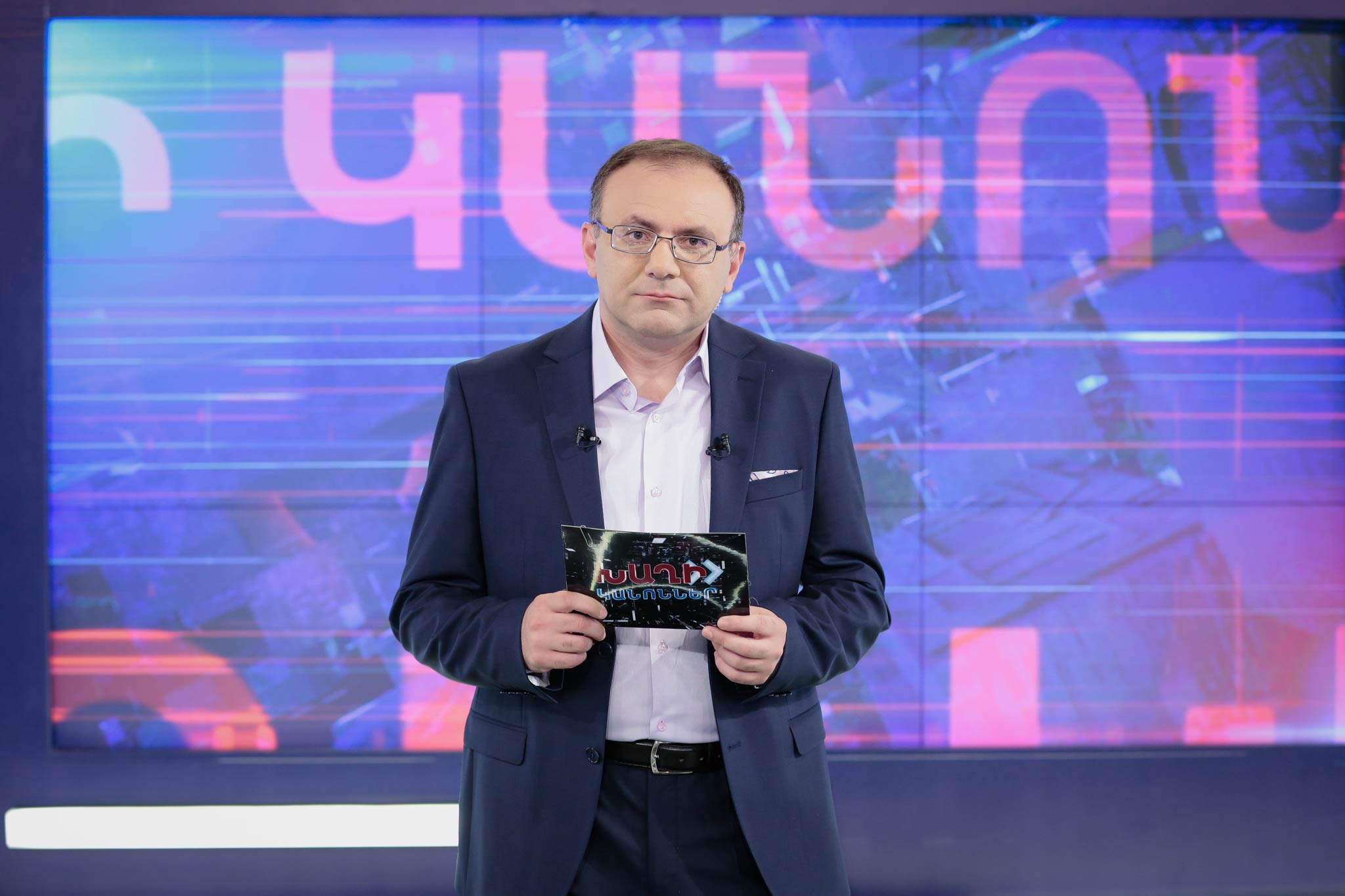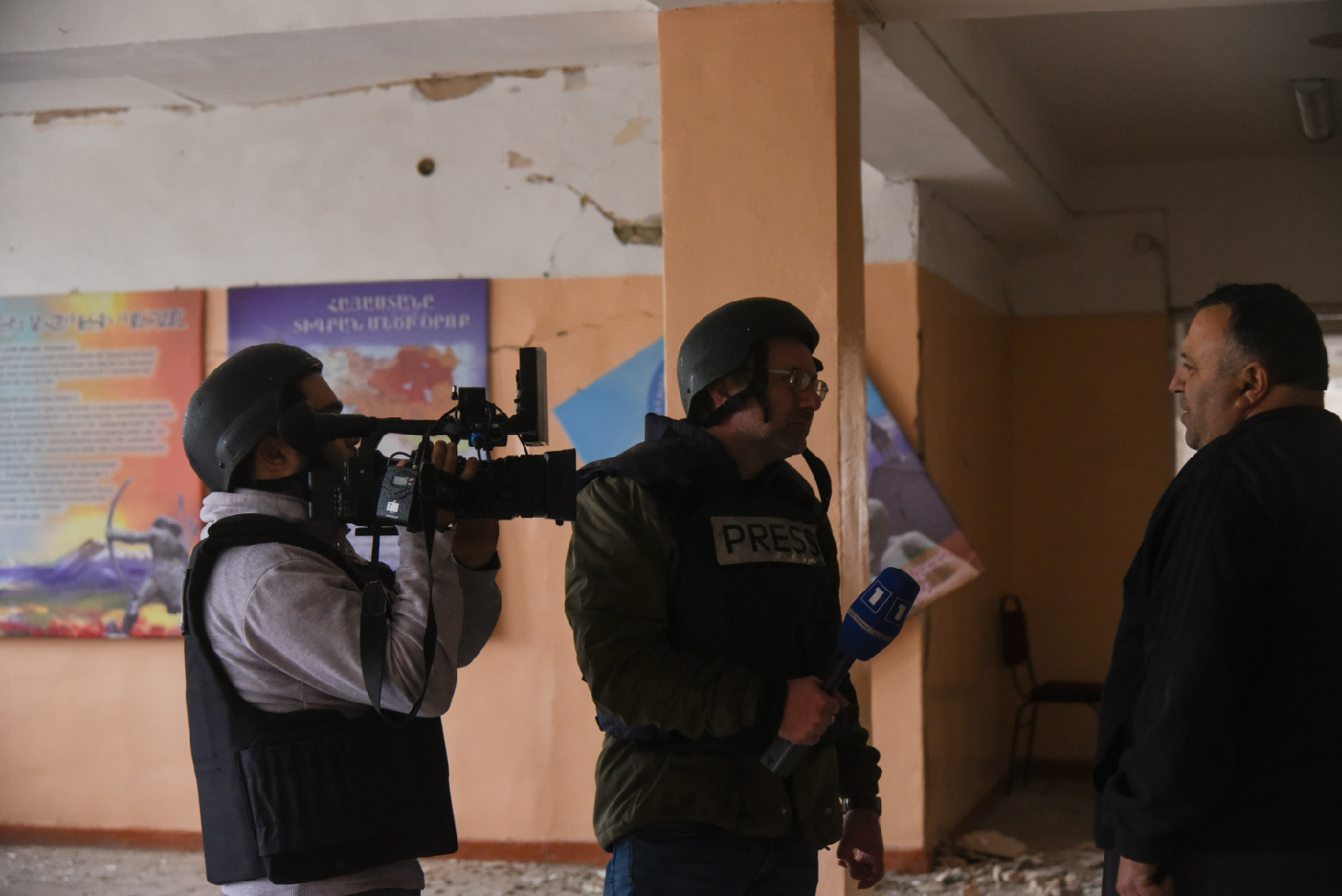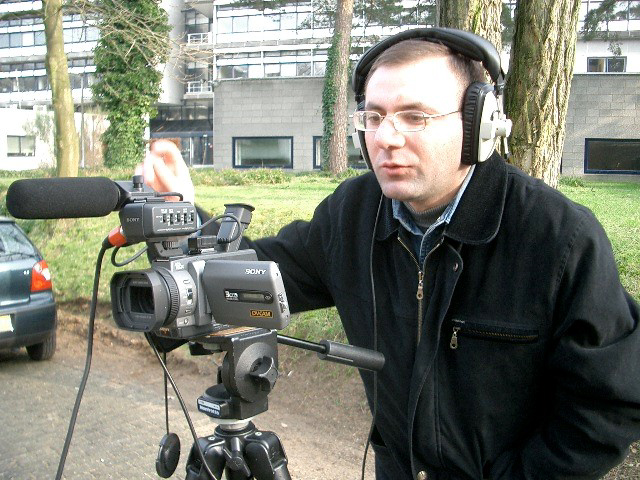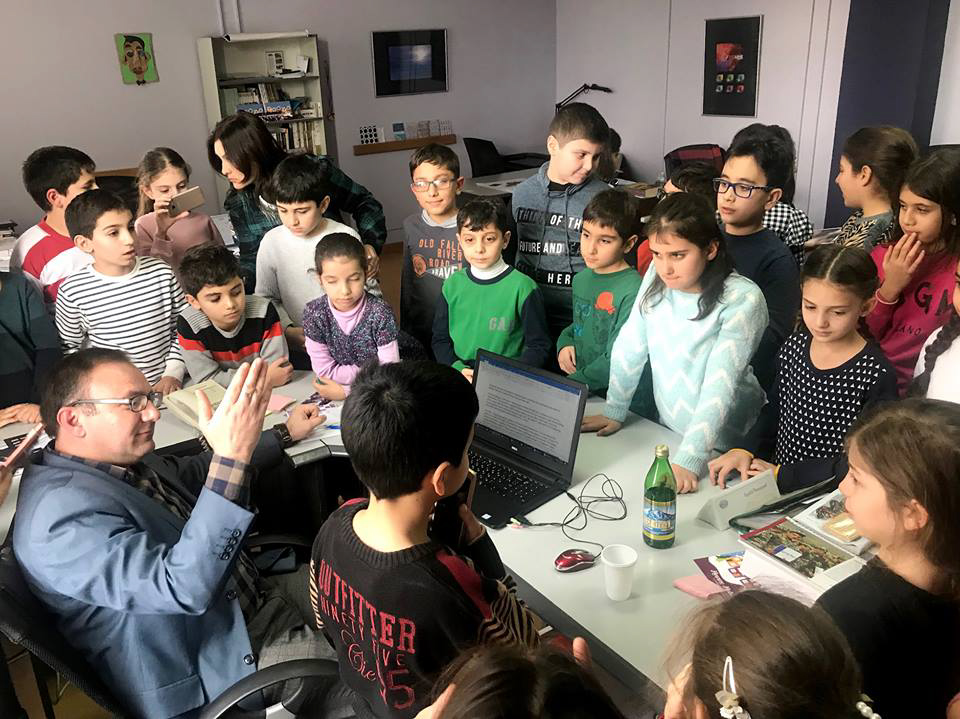Armen Sargsyan, RNTC alumnus: "Journalism is a lifestyle"
We love to keep in touch with our alumni, so we were very excited to welcome back Armen Sargsyan, RNTC alumnus from 2005, at our new office in Haarlem. Armen is from Armenia where he keeps on building digital spaces for young people. He is a teacher and a lifelong learner who shared with us a couple of his thoughts on media development, media literacy, and the importance of constant learning.

Thank you, Armen for taking the time for us. Please introduce yourself to our readers and tell us more about the inspiring work you are doing.
I started my career as a local reporter in a small TV station in North Armenia. My last job posting was as the executive director of Armenian Public TV with more than 1000 employees. The gap between being a reporter and a manager is full of professional challenges: I was trying to use media for development all the time. I am always trying to use the unusual approach in media and communication. Journalism, as a profession, has changed a lot. Nowadays we are not just a medium between the source and the society. In Chemistry, there is a term called catalyst: a substance that changes the rate of a chemical reaction but is itself unchanged at the end of the process. I have tried the opposite: to change the processes and to be changed. That is why I try to invest creative and sometimes crazy ideas in media. You cannot explain to young people changes in the Constitution through usual TV reports. That is why I create RnB songs about legislation so they can have access to that content in their cars. You cannot explain a crisis by only telling about it in words. That is why I suggest Internet-integrated maps with the interaction of history. I prefer video games on domestic violence instead of talk shows. The secret is that if you keep all the values of journalism (luckily, these values still remain unchanged: ethics, objectiveness, telling the truth, checking information), you get the result that is very close to your goal: using media for development.

You are super busy with various different projects you are simultaneously working on. What is at the moment taking the most of your time?
I am not super busy. The explanation is that journalism is a lifestyle. A good plumber may be called at night to fix the tubes, or a good doctor may arrive for surgery after their working hours. If we admit this fact, we will stop complaining that we have no time, or that we violate the deadlines. I was covering the war in Nagorno Karabakh (between Armenia and Azerbaijan) for 44 days in 2020. During that period, I was also giving online lectures to university students. We have to find time and space for ourselves and for our profession. There is a nice proverb in Latin: Deus mare, Batavus litora fecit, or God created the sea, but the Batavians (Dutch) the coasts. So we have to create our coasts ourselves. My coast is self-education. I read a lot and I take courses on data journalism and data visualization. I also try to learn the algorithms of social media: how to turn online recourse into offline ones and how to bring offline topics into online communities. This is so interesting that I do not feel busy at all.
We are proud to call you RNTC alumnus. What training did you attend and when?
I have attended the course International Broadcast Journalism Course: Social Conflicts and Cohesion. It was in 2005 when multimedia storytelling was making the first steps in our profession. I really liked the course idea: to use various formats to report social conflicts and find solutions.

What were the major takeaways from the course? How did it affect your professional development?
The most important thing I understood was that all the knowledge and skills of the course are quite applicable to what I do in Armenia. This is a unique thing. There is a multicultural environment, lots of trainers and topics, but you feel as if the course is designed for you and for your country. And it is! When I came back to Armenia after completing the course, I founded a talk show based on the course outcomes. It was on air for seven years and was covering social conflicts in Armenia through the techniques I was taught. I have received three professional awards during those seven years. Another great thing was the networking. Right after the course, VPRO contacted me to create stories for Dutch television. This cooperation is still on: I made a story for Dutch public TV in 2022 too.
What is your fondest memory from the course? Do you still keep in touch with your course peers?
Frankly, my first cultural shock was watching the automatic doors at RNTC. Even my first stand-up assignment was about those doors that automatically let us in and out. But my best memory was the travel assignment to Utrecht, Lombok community. Here I learned about an important issue that is still actual: immigration and integration. Various nations and cultures live together trying to keep their identity and also making small integration steps. This was my crash test: to make a story on an international topic. Still, it is one of my best experiences to report “internationally”, to explain a global issue on a local example. Apart from the course syllabus, I had a unique cultural experience and I still keep in touch with Thai Ngueyen Que from Vietnam, Anjana Shah Rawal from Nepal, Sanja from Bosnia, Cleopatra from Zimbabwe, Justin Dralaze from Uganda. And many others! I am also in constant contact with RNTC people.
Some of your core interests are media literacy and media education. Where does this interest stem from?
I am always looking to the future of the profession I have chosen. And media education is one of the main factors in media development. Several years ago, we did not have terms like fake news, post-truth, or fact-checking. These are processes that really slow our development. Instead of making nice human stories, the editorials spend a lot of money and resources on fact-checkers. Journalists alone cannot battle fake news and propaganda. And we cordially invite society to help us. I think this is a new cooperation between media and society and it will yield great results.

In your opinion, what does it mean to be media literate?
Media literacy is about consuming information. I compare this with buying food in the groceries shop. We look for the ingredients, we smell, we find the best "use before" date and we compare the prices. This has two meanings: we care for our health and we feel better when we understand the terms. Modern media consumption should be treated like this. Media education is not an academic discipline only, it is a life science like journalism itself. Having competence in consuming, and understanding the media, society can assist in the development of media management. We will speak in the “same language”. We will have common problems, and also common ways of solving them.
What would you tell somebody who is right now thinking about applying for a course at RNTC?
I would advise spending more time understanding the situation in the applicant’s home country. Find the niches you will act in after the course. Find opportunities inside your country and your workspace. By doing this, you will easily match the course to your needs. RNTC courses are for everyone in this world, but find your approach to exploring them. And definitely, go for it!
What advice would you like to give to your fellow RNTC alumni and those that will in the future join our alumni network?
One moment you are at RNTC and another you finish the course. Do not think that you have a lot of time for creating your network. Being an alumnus is just an opportunity but you have to think of gaining results from it. Think of your fellow alumni while making your projects: they will make your work more inclusive, more diverse, and more authentic.